Sponsoring the Tour de France Femmes: what’s in it for Zwift?
With a 4-year investment, the virtual platform goes all in on women’s cycling, while also trying to reduce its own gender gap
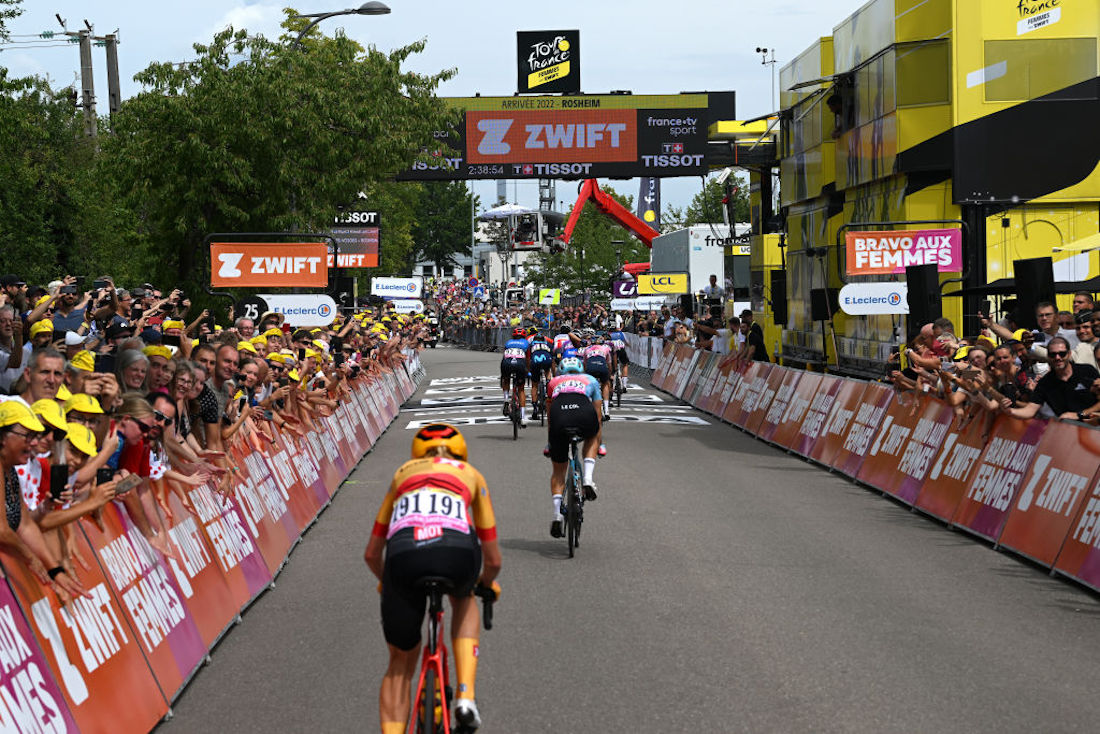
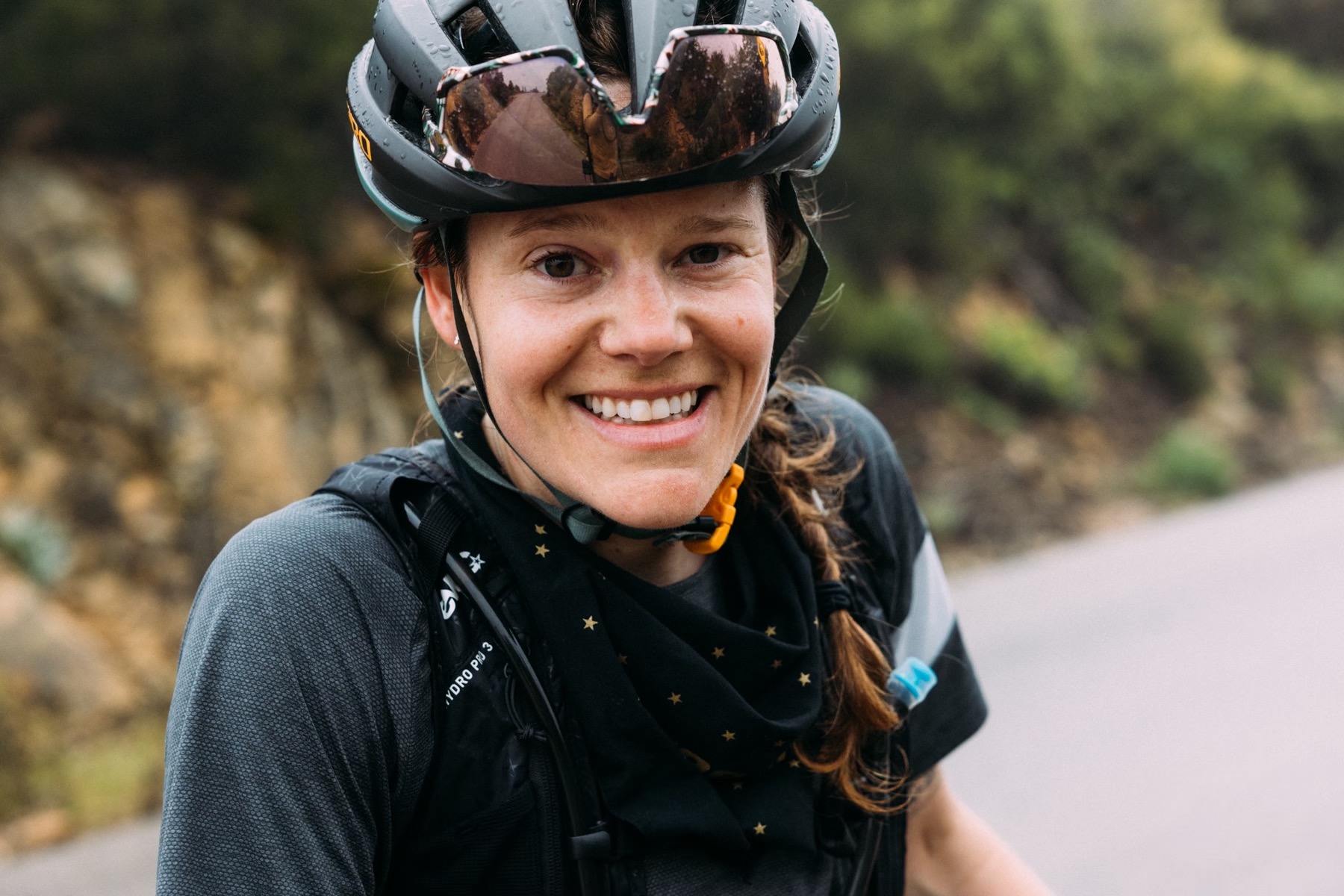
With the route reveal of the 2023 Tour de France Femmes avec Zwift comes the renewed excitement for another fantastic showcasing of women’s cycling.
From where we sit, this year’s momentous revival of a women’s edition of cycling’s most recognizable event, the Tour de France, was a smashing success. Millions of people across five continents and 190 countries tuned in to watch eight action-packed days of racing. Thousands more crowded the French countryside streets and banged on the finish line boards.
Across cobbles and gravel, up brutal mountain climbs and down screaming descents, in Paris and the remote countryside. The 144-women-strong peloton delivered a tremendous show and on July 31st, on top of the Super Planche des Belles Filles, history was made when an unmatchable Annemiek van Vleuten was crowned as the first official women’s Tour de France yellow jersey winner in 33 years.
Anyone who watched this historic event would have undoubtedly seen the orange-and-pink branding from Zwift. From the billboards to the podium banner down to the little stuffed squirrel mascots stage winners received, Zwift was everywhere. This visibility, along with the adding their name to the official race title, was handsomely paid for by the virtual training platform as a four-year sponsorship deal, which will give the event some time to grow and drum up continued commercial interest — a feat previous renditions all failed to do.
Being the title sponsor of the biggest cycling event on the calendar doesn’t come cheap. And while Zwift won’t reveal how just much the four-year investment cost them, Kate Veronneau, Zwift’s Director of Women’s Strategy, assures us that the investment is “significant.”
But what’s in it for Zwift, a virtual world far away from the very real cobblestones of the Champs Elysees?
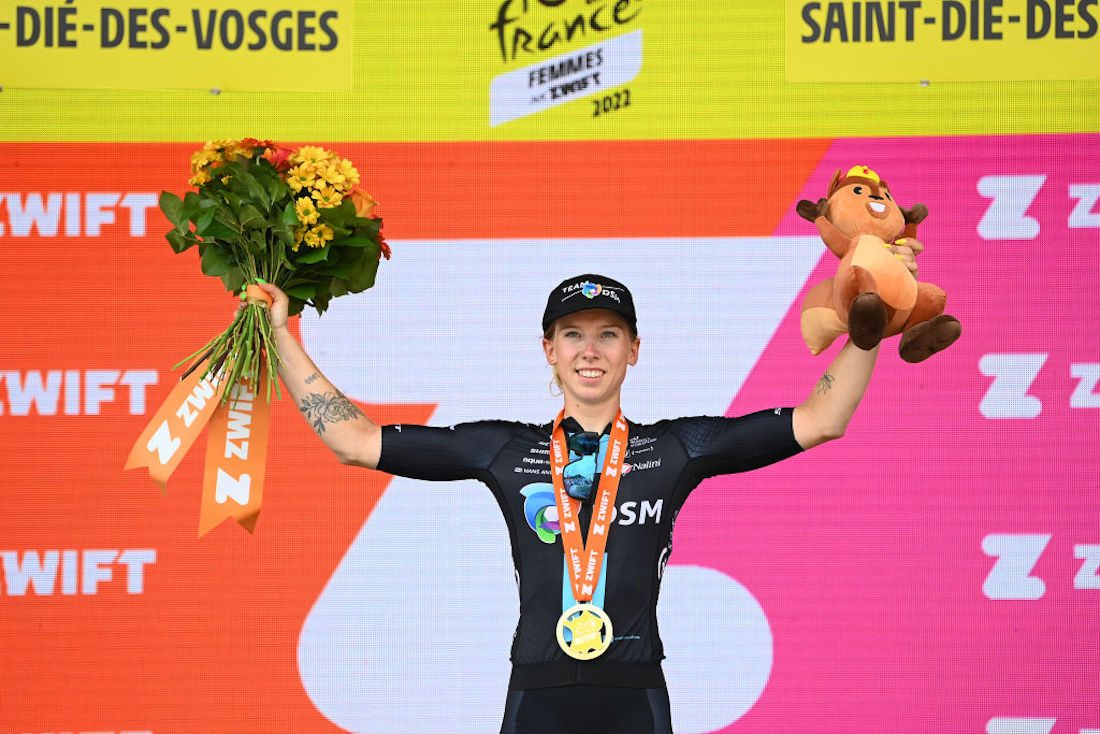
Lorena Wiebes, surrounded by Zwift branding, after winning her second Tour de France Femmes stage
Playing the Long Game
“This is a long play,” Veronneau admits, adding that Zwift has been investing in women’s cycling since the beginning, evidenced by their Zwift Academy Program, which started as a women’s program at first, and prize purse parity across the Zwift races from the beginning.
Get The Leadout Newsletter
The latest race content, interviews, features, reviews and expert buying guides, direct to your inbox!
“I want people to believe that we truly want to help create that future of cycling, that we all want to be a part of an inclusive, bright future of cycling, where little girls can dream of lining up to the Tour de France Femmes avec Zwift. We want to be looked at as a catalyst for change,” Veronneau says.
Investing in the Tour de France Femmes doesn’t come without risk. There have been several versions of a women’s Tour de France throughout history, dating back to 1955, but none managed to survive without sufficient financial support or (commercial) interest.
Zwift’s four-year sponsorship provides the financial backing, and four-year guarantee, the event needs to establish itself.
“It’s a big play. It’s a call to action for the whole industry. I'm hoping that this partnership is one of those tides that, you know, lifts all boats,” says Veronneau.
“If we are saying that [women’s cycling] is the game that we want to change, we hope that that sparks other people to also jump on board, to get behind supporting women's pro cycling, to point people to watching it and to talk to their companies about sponsoring a team or sponsoring a race.”.
I think in terms of the business case, their return of investment (ROI) if you will, Veronneau says success will be measured in brand value, visibility and affinity.
“An estimated 3.5 billion people watch the Tour of France, and 70% of cycling viewership in a year is focused on the Tour of France. So it’s about getting a piece of that pie. If we're going to support women's cycling, let's do it at the most visible high profile level that is going to get our brand name out there and show how big of an investment we're willing to make in the future of women's cycling,” she says.
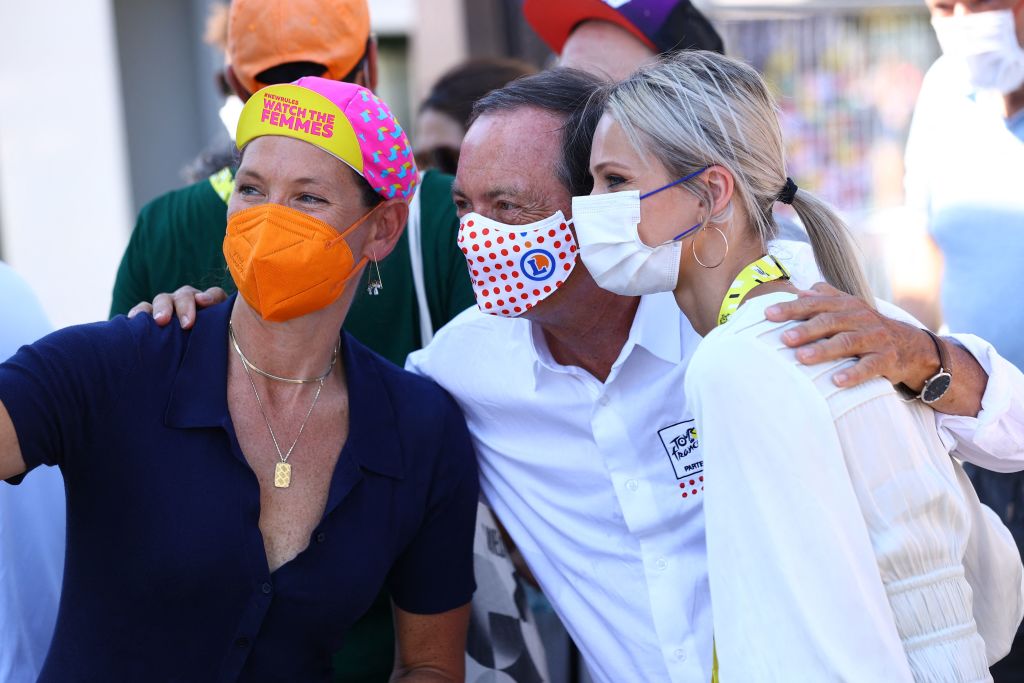
Zwift's Own Gender Gap
Ultimately, Veronneau admits that the end goal of the four-year Tour de France Femmes sponsorship includes decreasing their own gender gap.
Female Zwift users account for just 18% of all users, which is significantly lower than say Peloton’s female participation —estimated at 45 to 49%— or even female gym attendance in the U.S., which the IHRSA states is now 50.5%.
Just how many riders that 18% equates to, Veronneau wouldn’t say, but with initiatives like sponsoring the Tour de France Femmes, Zwift expect that number to grow.
“Of course, in doing this, I want people when they think about indoor riding, especially women to say, ‘Wow, well Zwift has a big heart and they're doing good things for the future of cycling so I’m going to train indoor and sign up for Zwift’,” Veronneau says.
“Women are the fastest growing demographic on Zwift. Women cycling numbers are rising so fast and we want to be front of mind when people are thinking about cycling and about companies that are doing good things for the future of women's cycling.”
One Event Down, Three More to Go
Success isn’t measured purely in women sign up numbers. Instead, the people at Zwift have been keeping an eye on viewership numbers and media hits. Social media engagement, click throughs and the general “buzz” which Zwift spend a lot of time, money and energy to create with their #WatchTheFemmes campaign.
Now, three months after the inaugural Tour de France avec Zwift took place, Veronneau says the eight-day race was an “unprecedented success,” even if it’s only the beginning.
“The race accomplished the mission of elevating women's cycling and inspiring people around the world,” says Veronneau.
“We are incredibly proud of this year's game-changing race, but the finish line on La Super Planche des Belles Filles is also a start line; we look forward to working with ASO, the teams, and riders to evolve the race year on year, growing the premier women’s event in a sustainable way, sparking increased investment in pro cycling, and keeping these athletes on the pedestal they deserve.”

Thank you for reading 20 articles this month* Join now for unlimited access
Enjoy your first month for just £1 / $1 / €1
*Read 5 free articles per month without a subscription

Join now for unlimited access
Try first month for just £1 / $1 / €1

Cycling Weekly's North American Editor, Anne-Marije Rook is old school. She holds a degree in journalism and started out as a newspaper reporter — in print! She can even be seen bringing a pen and notepad to the press conference.
Originally from the Netherlands, she grew up a bike commuter and didn't find bike racing until her early twenties when living in Seattle, Washington. Strengthened by the many miles spent darting around Seattle's hilly streets on a steel single speed, Rook's progression in the sport was a quick one. As she competed at the elite level, her journalism career followed, and soon, she became a full-time cycling journalist. She's now been a journalist for two decades, including 12 years in cycling.
-
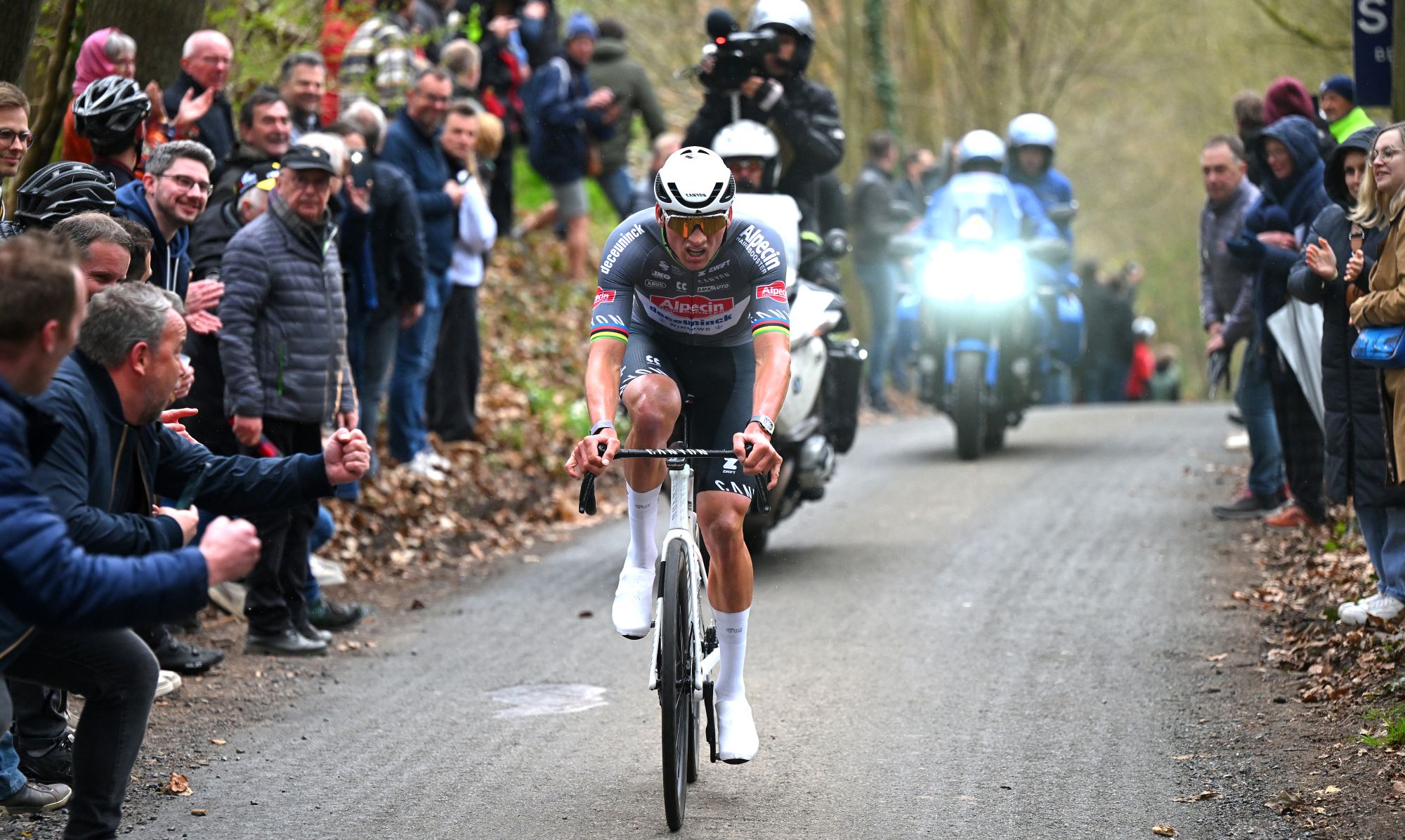 'I start every race to win' - Mathieu van der Poel fired up ahead of Paris-Roubaix showdown with Tadej Pogačar
'I start every race to win' - Mathieu van der Poel fired up ahead of Paris-Roubaix showdown with Tadej PogačarTwo-time winner says he has suffered with illness during spring Classics campaign
By Tom Thewlis Published
-
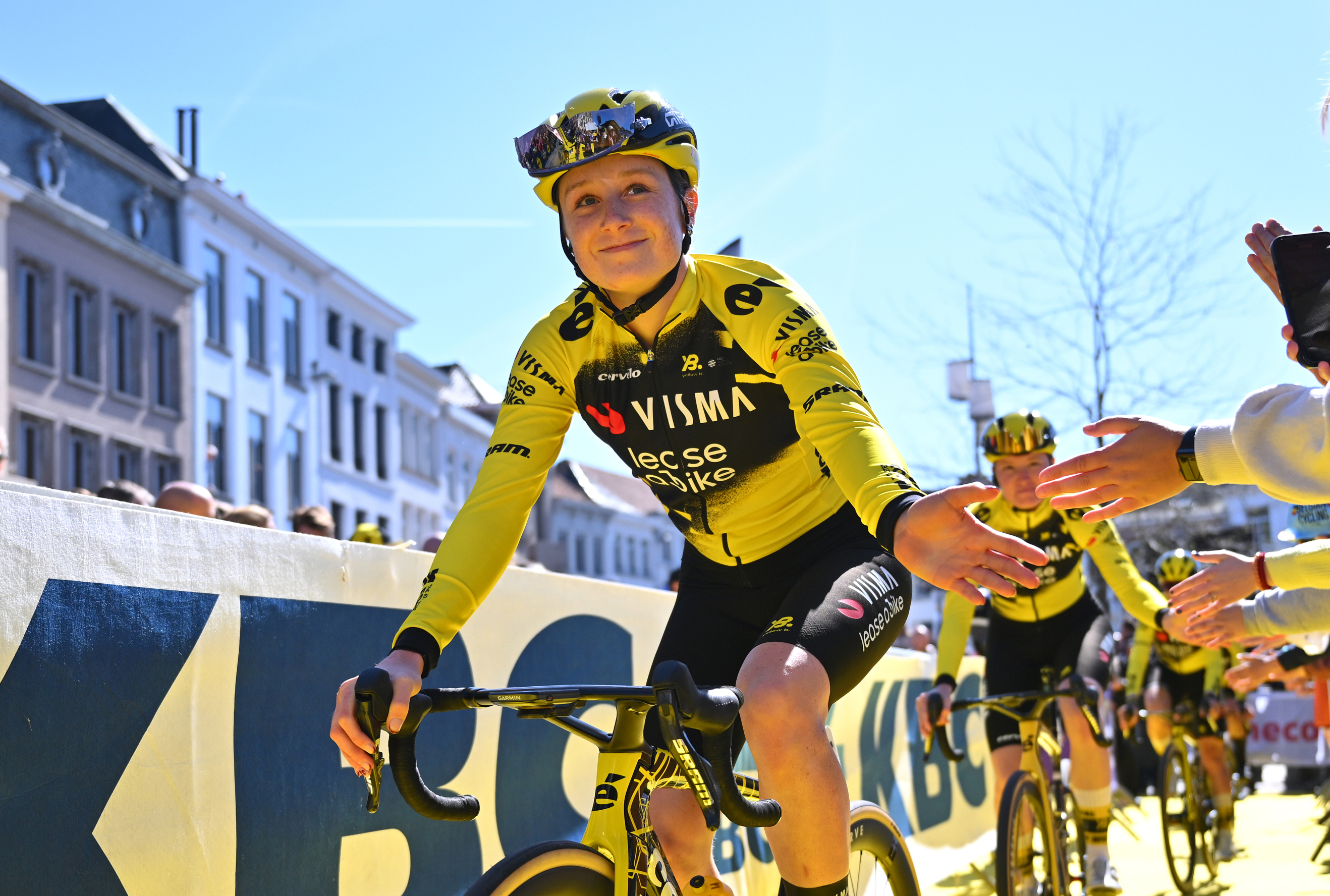 'It's really surreal that now I'm part of it' - 19-year-old Imogen Wolff set to go from spectator to racer at Paris-Roubaix
'It's really surreal that now I'm part of it' - 19-year-old Imogen Wolff set to go from spectator to racer at Paris-RoubaixBrit first came to see the 'Hell of the North' when she was six
By Tom Davidson Published
-
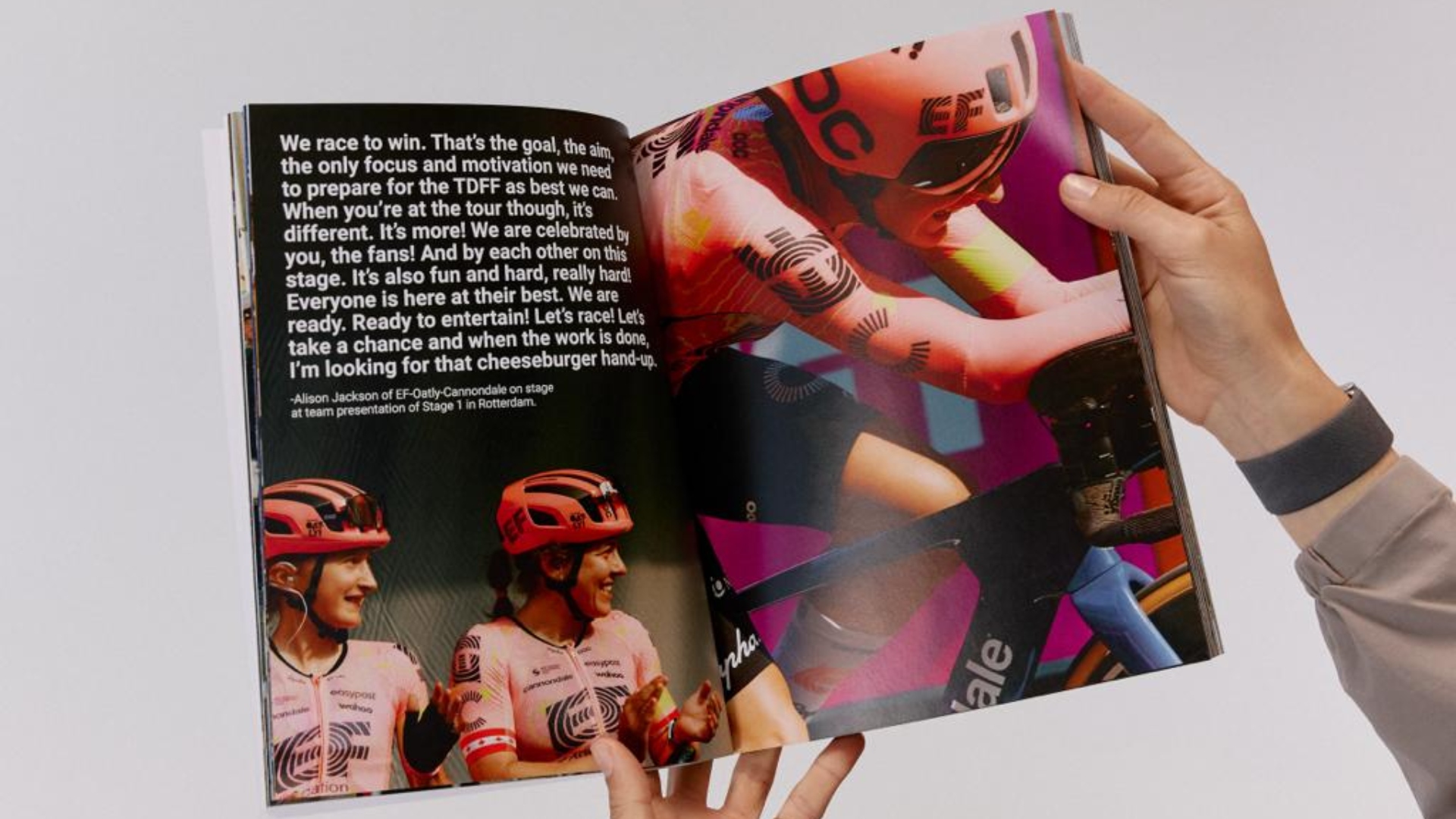 Beloved photographer Dominique Powers launches All The Way Up, capturing the most nail-biting Tour de France Femmes yet
Beloved photographer Dominique Powers launches All The Way Up, capturing the most nail-biting Tour de France Femmes yetCatch the renowned cycling photographer on her international book tour at Rapha clubhouses across the UK, Europe and the US this April
By Anne-Marije Rook Published
-
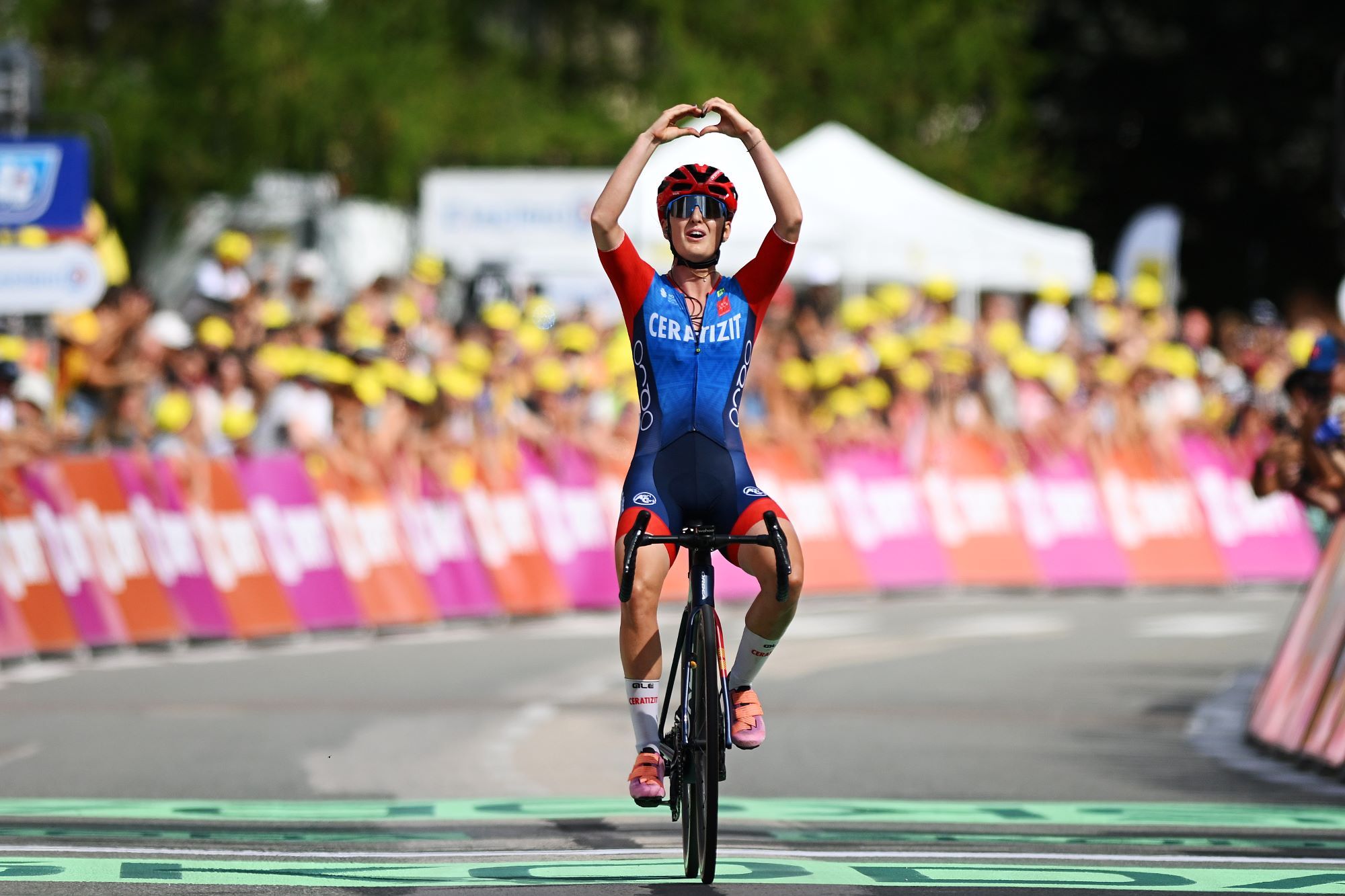 Tour de France Femmes breakout rider Cédrine Kerbaol signs with EF-Oatly-Cannondale
Tour de France Femmes breakout rider Cédrine Kerbaol signs with EF-Oatly-Cannondale"I’m coming with expectations of doing big things with the team," says the Frenchwoman
By Anne-Marije Rook Published
-
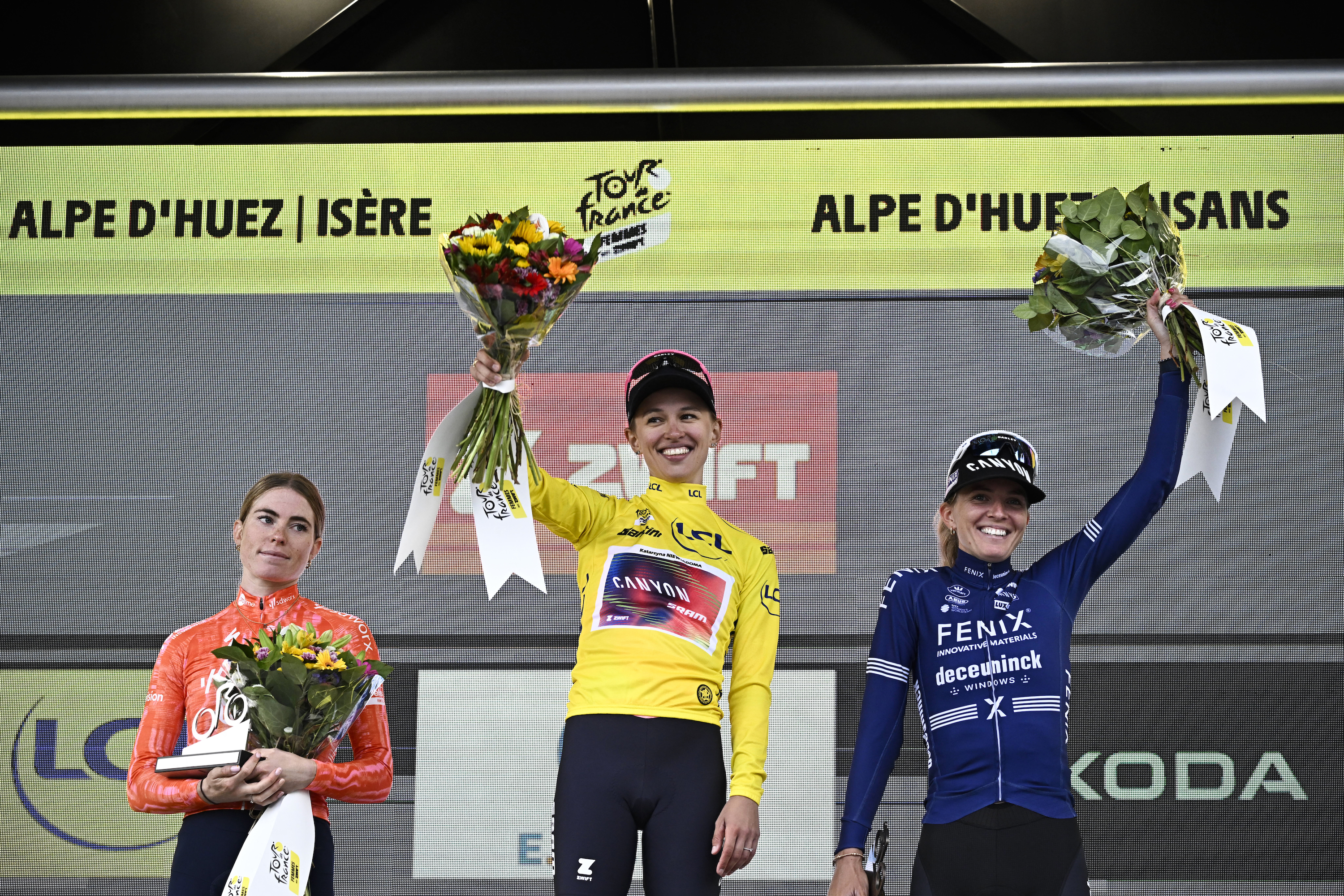 Tour de France Femmes avec Zwift 2025 route: Four mountain stages in toughest race yet
Tour de France Femmes avec Zwift 2025 route: Four mountain stages in toughest race yetRace to take place 26 July-3 August, with nine stages across France, from Brittany to the Alps
By Adam Becket Last updated
-
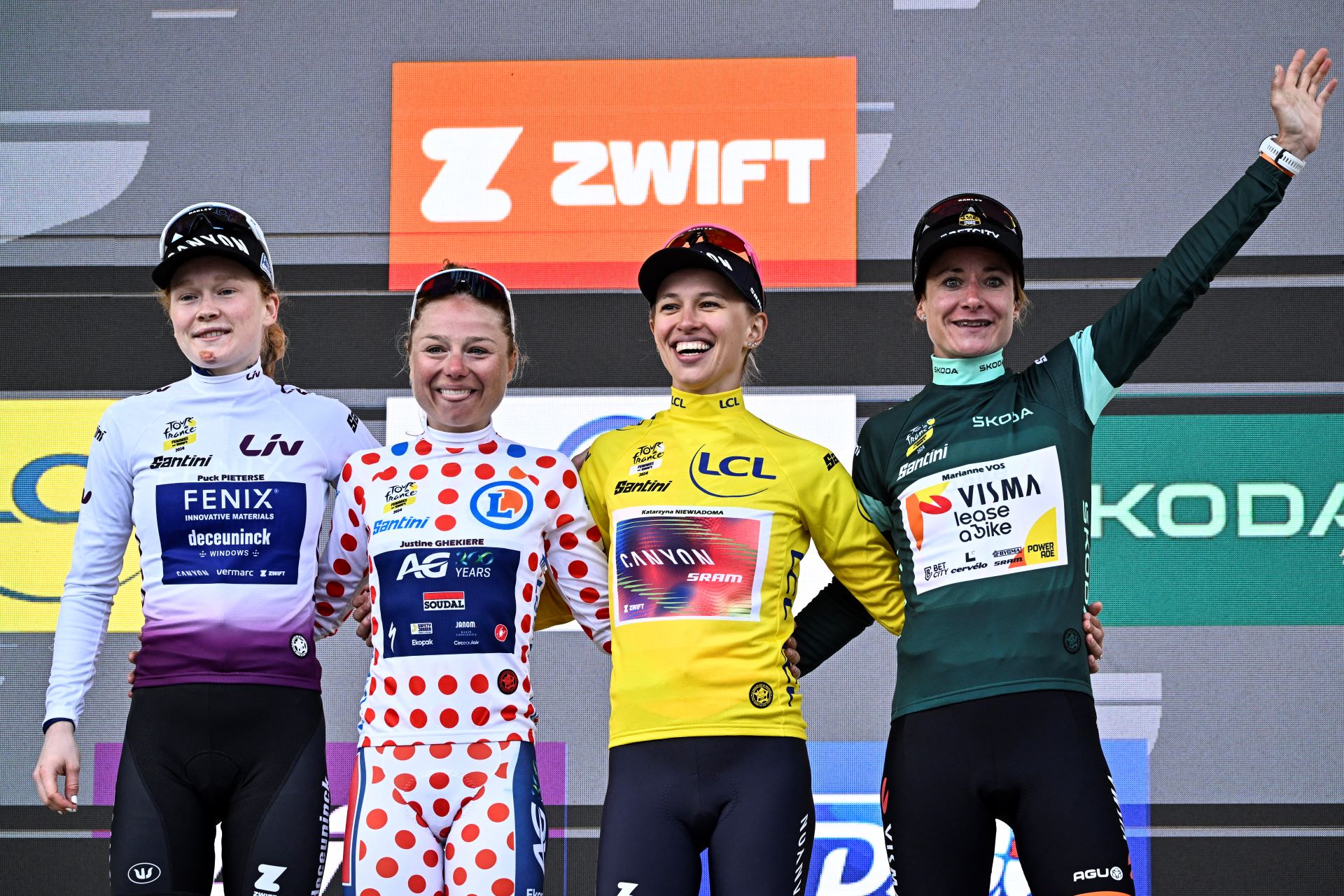 Zwift extends sponsorship of Tour de France Femmes: 'It is an absolute, clear, undeniable success'
Zwift extends sponsorship of Tour de France Femmes: 'It is an absolute, clear, undeniable success'In an exclusive interview, Zwift reveals how investing in women’s cycling benefits both the sport and its bottom line
By Anne-Marije Rook Published
-
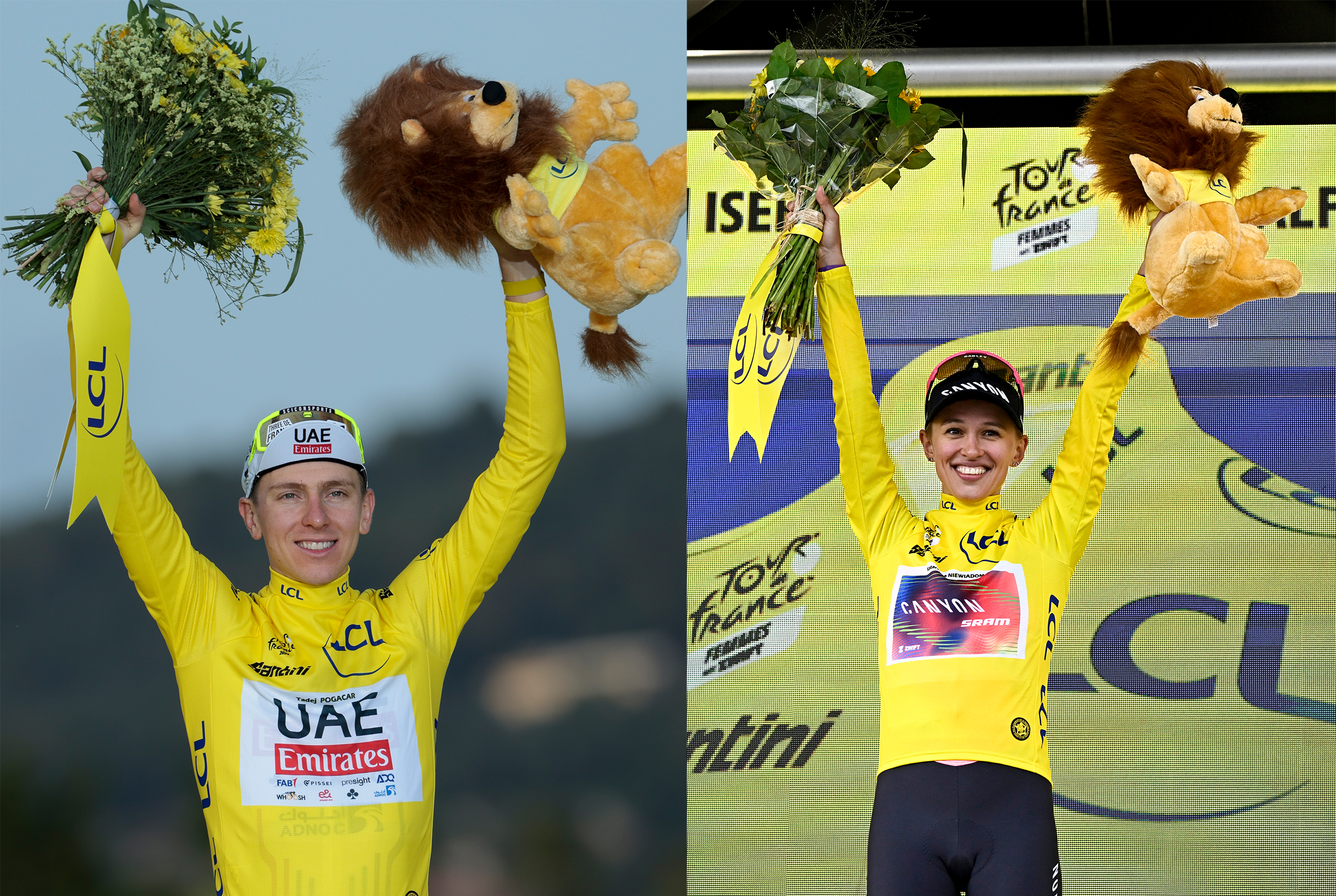 Kasia Niewiadoma and Tadej Pogačar both finished in yellow - but the Tour de France Femmes winner took home less than a tenth of the prize money
Kasia Niewiadoma and Tadej Pogačar both finished in yellow - but the Tour de France Femmes winner took home less than a tenth of the prize moneyTo put it in Euro per kilometre, the 2023 men's Tour paid €142.94 per km while the women earned €52.7 per km
By Anne-Marije Rook Published
-
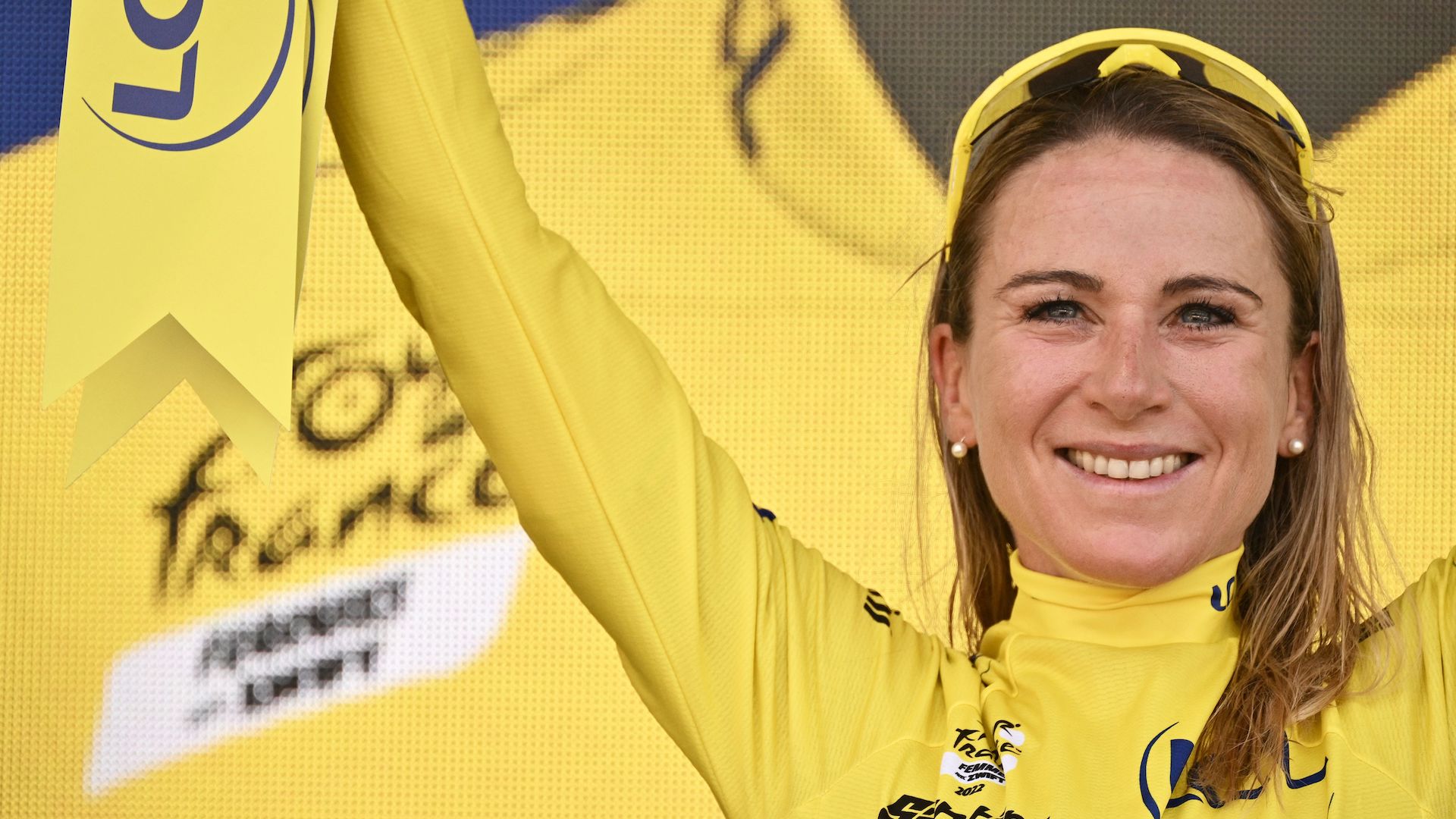 'I quit at just the right time' - Annemiek van Vleuten on being on the sidelines at Tour de France Femmes
'I quit at just the right time' - Annemiek van Vleuten on being on the sidelines at Tour de France Femmes"I barely even ride anymore—maybe once or twice a week, and I'm fine with that," says the cycling legend.
By Anne-Marije Rook Published
-
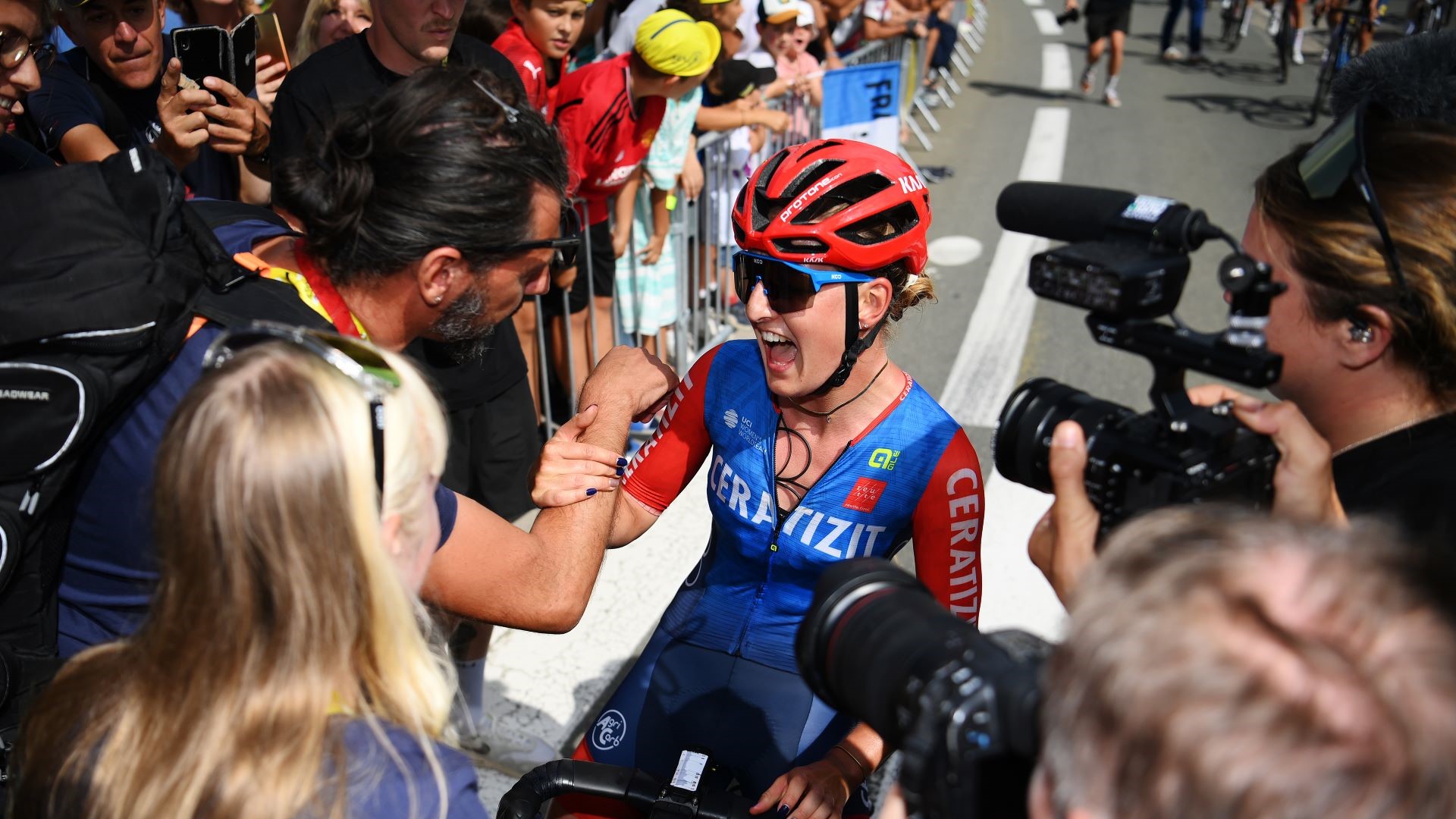 Dessert and champagne - a humble celebration for the first-ever French stage winner of the Tour de France Femmes
Dessert and champagne - a humble celebration for the first-ever French stage winner of the Tour de France FemmesCédrine Kerbaol's impressive performance moves her into second place in the GC as the Tour heads into the Alps
By Anne-Marije Rook Published
-
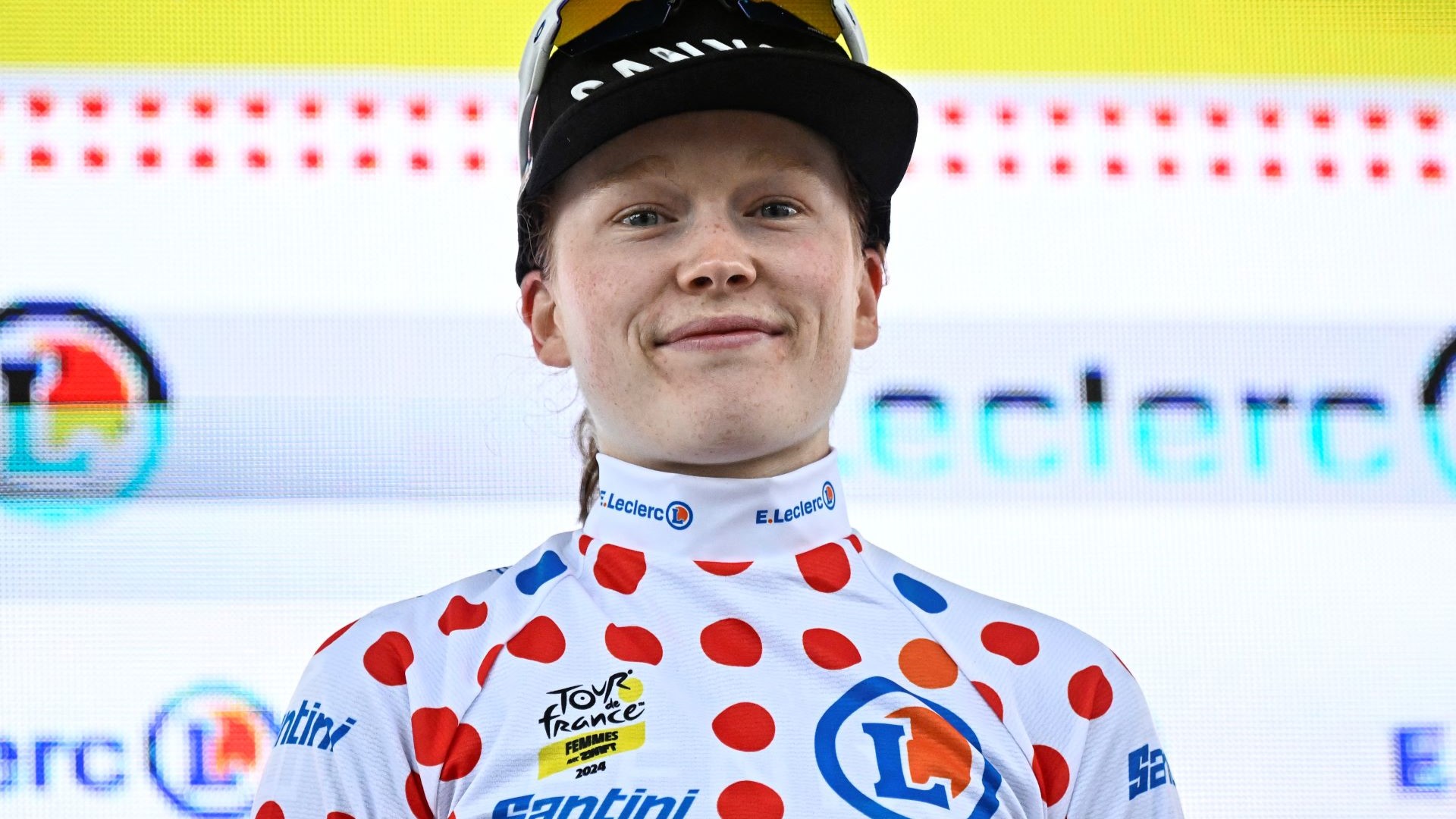 'I have dreams on the road' – Puck Pieterse takes Tour de France Femmes by storm in her first-ever stage race
'I have dreams on the road' – Puck Pieterse takes Tour de France Femmes by storm in her first-ever stage raceThree days in, the 21-year-old has a stage win and is leading two classifications—not bad for someone who, by her own admission, is still “just feeling it out” on the road
By Anne-Marije Rook Published